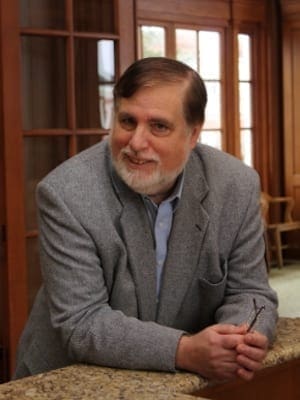Americans deserve a health-care plan that is universal, affordable and compassionate. With the advent of modern technology, the gross national productivity of the country and the moral benevolence that historically underlies American culture, universal health care is long overdue. In fact, health care among enlightened societies is a human right.
Born in the United States, I am a dual citizen who, by family choice and virtue of my work, lives in Canada. We have a universal health plan, often much maligned in the American press by uninformed or demagogic voices. Let me say at the outset that no plan is perfect.
Here’s a reality check: there are slightly more than 930,000 people living in my province, Nova Scotia, 58 percent of whom are employed (that is, not retired or on public assistance). Each taxpayer pays an annual contribution to the various government-administered programs, of which health care is a high priority.
In excess of $3 billion annually goes directly into health care, with more through indirect community services. When I factor in my deductions and so on, my total annual tax contribution (covering health care) is less than 20 percent. In addition I pay a universal goods and services tax that leads back into provincial services.
The Nova Scotia health-care program covers basic medical services, hospital care, prescription drugs, ancillary care (like physiotherapy and psychiatric care), home care, child care and preventive medicine. The central medical/surgical facilities and the schools of pharmacy, medicine and allied health care are in Halifax, our provincial capital. No one in the province is more than three hours distance from Halifax. In the outlying regions of the province are medical/surgical hospitals, clinics and urgent care facilities.
Mammograms and diabetic counseling are provided in mobile units around the province. Doctors are given an education provided by the province, and nurses and therapists likewise receive financial aid. Advanced technology like MRI is available to all sectors of Nova Scotia. There are cooperative agreements with other provinces and with medical centers in the United States for special needs.
Recently, there is a concerted, effective effort to reduce waiting times. Nova Scotians are treated without prejudice across Canada and, vice versa, all the other provinces enjoy reciprocity in Nova Scotia. The end result is that Canadians enjoy equal access to a national health-care system administered by the provinces.
Historically, universal health care was the dream and passion of Tommy Douglas, a minister-turned-political leader in the 1940s-60s. Douglas was a Baptist pastor in drought-ridden, immigrant-settled Saskatchewan during the Depression. He was influenced by Walter Rauschenbusch, a prominent American Baptist theologian of Rochester, N.Y., and a key figure in the development of a theology of the social gospel.
Douglas believed that compassion for one’s neighbor and physical well-being for all people were part of a biblical mandate. The rising political star saw Canadians’ dire need for sickness assistance and hospital care, and he made it his principal agenda as he became premier of the western province of Saskatchewan and later leader of the national New Democratic Party.
In 1966 universal health care for all Canadians was adopted as national legislation. Today, when Canadians are asked who they believe is the most influential person in their 20th century history, they say Tommy Douglas.
Underlying Canadian concern for health care are cultural ideals of community and compassion. It is important to know that the needs of all citizens are met equally by merely presenting a health card to identify one’s provincial residence. While there are supplemental insurance plans that enlarge payments for special needs and travel outside the country, all Canadians can count on being treated equally and with compassion.
There is no on-site economic qualification, prejudice against the poor or people seeking emergency care from outside the country. Affordability is achieved by contributions through one’s employment and coverage for those who cannot work.
The Christian community in the United States needs to take up the cause of universal health care. Roman Catholics have a long heritage in this regard. Methodists, Presbyterians, Episcopalians and Adventists have all contributed to the health needs of various Americans.
Baptists in particular should be at the lead of supporting health care, given their record in providing regional medical care and institutions from Boston to Texas, and Florida to California. A united Christian witness emanating from the grassroots would tip the scales of national political commitment.
Now is the time for the Christian community to be counted: universal, affordable and compassionate national health care. Nothing less. The imperative of love demands it.
William H. Brackney is the Millard R. Cherry Distinguished Professor of Christian Theology and Ethics at Acadia University and Acadia Divinity College in Nova Scotia.

